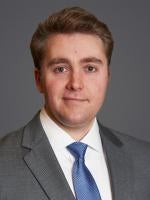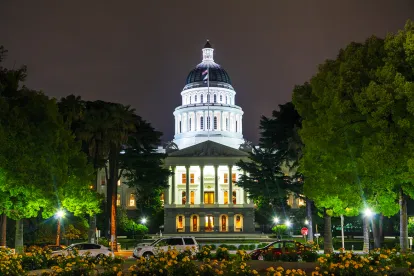On September 1, 2020, the Sacramento County Board of Supervisors passed the Sacramento County Worker Protection, Health, and Safety Act of 2020. The county appears to have modeled its new law on the City of Sacramento’s own recent Worker Protection, Health, and Safety Act (WPHSA), which the city enacted on June 30, 2020. The two laws are nearly identical, providing employees with paid sick leave for certain COVID-19–related reasons, allowing workers to refuse to work in certain situations, and prohibiting employer retaliation. Here are answers to some several frequently asked questions about the measures.
When do these requirements go into effect?
The City of Sacramento’s ordinance went into effect on July 15, 2020. Sacramento County’s ordinance is effective on October 1, 2020.
To which areas does each act apply?
The City of Sacramento’s act applies within city limits. Sacramento County’s act applies to all unincorporated parts of Sacramento County. These rules do not apply to any of the several incorporated municipalities in Sacramento County—Citrus Heights, Elk Grove, Folsom, Galt, Isleton, and Rancho Cordova.
To which employers do the acts apply?
Both versions of the WPHSA apply to all employers that employ 500 or more employees nationally, which means that the enactments are designed to mirror the federal Emergency Paid Sick Leave Act (EPSLA) established in the federal Families First Coronavirus Response Act. Like the federal EPSLA, employers subject to either of these local supplemental leave programs may exclude employees who are health care providers and/or emergency responders.
What safety procedures must an employer implement?
Both the city’s and county’s WPHSA provisions require that covered employers carry out the following safety practices:
-
“[Clean and disinfect daily] high-touch areas in accordance with guidelines issued by the Centers for Disease Control and Prevention.”
-
“Maintain[] … cleaning protocols established by the employer for all other areas of the employment site.”
-
“Establish protocols for action if the employer learns that the worksite has been exposed to a person who is a probable or confirmed case of COVID-19.”
-
“Provide employees access to regular handwashing with soap, hand sanitizer, and disinfectant wipes.”
-
Clean common areas daily and between shifts. These common areas include breakrooms, locker rooms, dining facilities, restrooms, conference rooms and training rooms.
-
Provide face coverings for employees and mandate that employees wear them “except to the extent an employee can maintain physical distance of at least six feet from other persons or is using break time to eat or drink.”
-
Establish protocols that ensure proper physical distancing.
Must employers notify employees of these safety practices and protocols?
Yes. Employers must notify employees about these safety practices and protocols in writing in English and any language spoken by at least 10 percent of the workforce.
Can an employee refuse to work if the employee believes the employer is not implementing or complying with the required safety practices and protocols?
Yes. An employee may refuse to work if the employee (1) reasonably believes the employer is in violation of the enumerated safety protocols and (2) provides notice to the employer of the alleged violation.
Do the acts allow an employee to bring a retaliation claim an employer?
Yes. Both the city’s and county’s WPHSA provisions specifically prohibit an employer from retaliating against an employee for using supplemental paid sick leave or for refusing to come to work if the employee reasonably believes the employer is not following the WPHSA’s required safety practices and protocols. If an employer does retaliate, the employee has one year to file a claim in civil court. The employee may recover economic and punitive damages. Before bringing the claim, the employee must notify the employer of the alleged violation in writing and give the employer 15 days to cure the violation.
How much supplemental paid sick leave can employees take?
Full-time employees are entitled to 80 hours of supplemental paid sick leave, while part-time employees are entitled to an amount of hours equal to the number of hours worked on average over a two-week period. To calculate this average, the WPHSA instructs employers to multiply by two the number of hours worked by the employee for each week the employee worked during the six months immediately preceding the effective date of this chapter.
May an employer take an offset against the supplemental paid sick leave?
Yes. An employer may take as an offset any additional leave hours that the employer provided after March 19, 2020, for employees to use for COVID-19–related reasons. Additionally, employers that complied with the Governor Gavin Newsom’s executive order providing paid sick leave to food sector workers may use those hours as an offset.
For what reasons may an employee use supplemental paid sick leave?
An employee may use supplemental paid sick leave for any of the following reasons:
-
“The employee is subject to quarantine or isolation by federal, state, or local order due to COVID-19 or is caring for a family member who is quarantined or isolated due to COVID-19.”
-
The employee is self-quarantining because of COVID-19 based on a health-care provider’s advice.
-
The employee is caring for a family member who is self-quarantining because of COVID-19 and based on a health-care provider’s advice.
-
The employee is taking off work because “the employee is over the age of 65 years or is considered vulnerable due to a compromised immune system.”
-
“The employee is off work because the employer [he or she] works for or specific work location temporarily ceases operation due to a public health order or other public official’s recommendation.”
-
“The employee is experiencing symptoms of COVID-19 and is seeking a medical diagnosis.”
-
“The employee is caring for a minor child because a school or daycare is closed due to COVID-19.”
At what rate must an employer pay supplemental paid sick leave?
Both the city’s and the county’s WPHSA provisions follow the Families First Coronavirus Response Act with respect to pay. The employer must pay the regular rate of pay, up to $511 per day or $5,110 overall, when an employee takes leave for his or her own reasons. The employer must pay two-thirds of the employee’s regular rate of pay, up to $200 a day or $2,000 overall, when an employee takes leave to care for a family member.
What other prohibitions does the acts impose on employers?
Employers may not force employees to use other types of paid time off, such as regular sick leave and vacation, before using supplemental paid sick leave. They may not require that employees find replacement workers before using supplemental paid sick leave. An employer may not issue attendance points or any discipline to an employee for using supplemental paid sick leave.
May an employer ask an employee for a doctor’s note or written documentation supporting the leave?
No, although the employer may ask the employee the reason for the leave. The employer also can require that employees follow the employer’s notice procedures when the need for leave is foreseeable.
Must an employer pay out unused supplemental paid sick leave if the employment relationship ends or when the law expires?
No.
What if a company is already providing COVID-19–related paid sick time?
If an employer has already created a program providing additional paid sick leave specifically for COVID-19–related needs (as described in the WPHSA), then the employer may credit those hours toward the number of hours of supplemental paid sick leave it must provide under the WPHSA. This also applies to any leave hours to which an employee may be entitled under the governor’s Executive Order N-51-20.
When do the acts expire?
Both the city’s and county’s acts expire on December 31, 2020.





 />i
/>i

